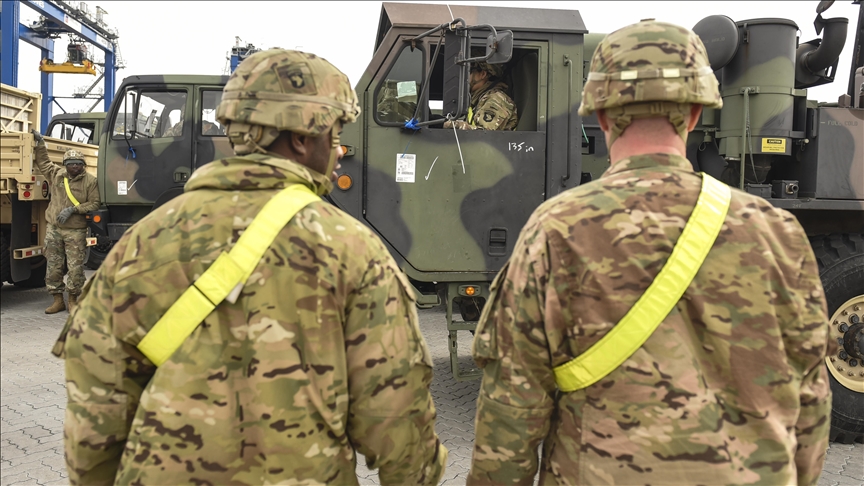

By Anadolu Agency
LEFKOSA, Turkish Republic of Northern Cyprus
A protest in the Southern Cypriot city of Larnaca on Sunday called for an end to US military presence.
Protesters assembled outside the Centre for Land, Open-Sea, and Port Security (CyCLOPS) in Larnaca, demanding the immediate removal of US military forces from Southern Cyprus and an end to US-Southern Cyprus military cooperation.
Tradesmen and some residents in the region also joined the demonstrators.
A statement by Southern Cyprus’ peace council expressed its solidarity with the people of Palestine and Lebanon, demanding an end to the war in the region for peace, security, and stability in the Middle East.
Speaking to the demonstrators, Stefanos Stefanou, secretary-general of the leftist AKEL party, said they opposed the island becoming a war base, espionage center, and military training area against neighboring states.
Stefanou said infrastructure, ports, airports, land, and airspace of Southern Cyprus are intended to serve the people of Southern Cyprus, not the Americans, Israelis, or any third party.
Military cooperation between Southern Cyprus and the US has increased in recent years, criticized by Türkiye and the Turkish Republic of Northern Cyprus (TRNC).
Decades-long Cyprus problem
Cyprus has been mired in a decades-long dispute between Greek Cypriots and Turkish Cypriots despite a series of diplomatic efforts by the UN to achieve a comprehensive settlement.
Ethnic attacks starting in the early 1960s forced Turkish Cypriots to withdraw into enclaves for their safety.
In 1974, a Greek Cypriot coup aimed at Greece’s annexation of the island led to Türkiye’s military intervention as a guarantor power to protect Turkish Cypriots from persecution and violence. As a result, the TRNC was founded in 1983.
It has seen an on-and-off peace process in recent years, including a failed 2017 initiative in Switzerland under the auspices of guarantor countries Türkiye, Greece, and the UK.
The Greek Cypriot administration entered the EU in 2004, the same year that Greek Cypriots single-handedly blocked a UN plan to end the longstanding dispute.
We use cookies on our website to give you a better experience, improve performance, and for analytics. For more information, please see our Cookie Policy By clicking “Accept” you agree to our use of cookies.
Read More